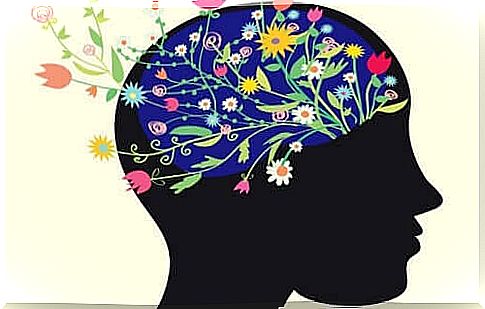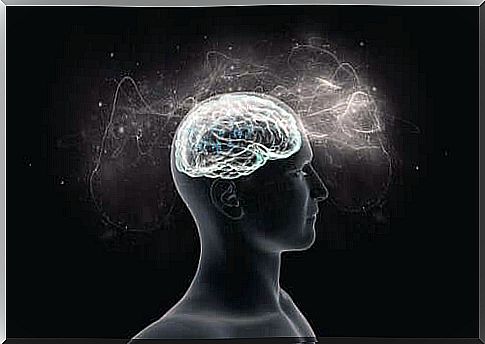Is It Possible To Train The Brain To Be Happy?

Is it possible to train the brain to be happy? We live in a moment when the so-called “happiness industry” seems to want to convince us, through endless publications, that the so longed for well-being is always within our reach.
It would be enough to apply a series of strategies to achieve it. However, is this as easy as it sounds? Is there a simple formula for breathing with greater joy and optimism?
The answer is no”. In terms of change, on this journey towards psychological well-being and authentic wholeness, nothing is quick or easy.
To begin with, something we need to understand about the brain is that it doesn’t matter to the brain whether we’re happy or not. In fact, all he wants is for us to be alive. Therefore, he will always give more value to the fears and mechanisms that put us in our comfort zone.
However, the fact that we have an organ that is resistant to change does not mean that we cannot change. We are a species that has evolved by generating remarkable advances, advances that help us adapt much better to our complex environments.
Similarly, something we see in clinical practice is that changes with a focus on balance and healing are possible, but they require a true (and active) commitment on the part of the person.
Let’s see more information below.

Is it possible to train the brain to be happy?
Training the brain to be happy does not involve improving your diet. Or lead a more active life, play sports or take a trip every two or three months. All of this can, of course, make us healthier, provide us with punctual pleasure and satisfaction that can last for hours or even days.
However, none of these strategies will make us handle stress better. When life becomes difficult, we will continue not knowing what to do and will live again with the feeling of vulnerability, fear and anxiety.
According to psychologist Mihaly Csikszentmihalyi, to achieve a happy life, easy recipes do not work, and advice from others does not work either. This is an individual process in which everyone must invest efforts to be creative and original.
However, there are several basic realities that we can take as a starting point for reflection. Are the following:
Train your thoughts in reflection, flexibility and realistic positivism
Something neuroscience has long emphasized is that thoughts are the mere product of brain activity. The brain creates them as a result of a series of electrical connections. But something we know for a long time is that the thoughts themselves have also power over the brain: they can generate new connections and to shape it.
- For example, obsessive repetitive negative thoughts slow down brain coordination, deplete it, and even slow down the activity of the prefrontal region of the brain. Something like that makes it very difficult to find solutions to problems.
- Training the brain to be happy forces us to have greater control over this type of mental process. Taking care of what we think is also health.
- Everything we think and say is important. Therefore, we must detect these negative thought patterns and stop them.
- It’s not about transforming them by using overconfident, hollow positive thinking. It is simply a matter of applying a more reflective and less rigid approach to our reality. It’s about being able to see ten options for a problem, to broaden perspectives, and stop locating fatalities in our immediate future.

Have a purpose every day, give your life meaning
What is a purposeless life? At the cerebral level, it is the lack of dopamine, serotonin, that well-being that is in tune with daily dreams and goals. If our reality has no meaning or motive, we too will be worthless.
This state leaves us suspended in an abysmal void, which paves the way for mood disorders such as anxiety and depression. As Viktor Frankl said in his day, nothing gives us more resistance than having a task, than remembering what’s important to us and what’s worth moving forward for.
So if we want to train our brains to be happy, we need to clarify not only what our vital purpose is. Each of our days must have a goal, a goal to be reached, even if it is something as simple as sleeping well, meeting someone, reading a book and walking .
Happiness is feeling good about yourself: the power of self-esteem
Nobody can be happy every day. It is impossible to reach and maintain this mental and emotional state at all times. However, there is something much more important than being happy: being good about yourself. Currently, lack of self-esteem is still a problem for a good number of people.
This component is essential to promote well-being and, without a doubt, is the secret of satisfaction and a dimension that we must take care of on a daily basis. John Rawls, one of the most recognized philosophers of the 20th century, used to say that every society that aspires to be happy must have citizens with good self-respect.
He defined this dimension as trusting ourselves to achieve what we want, valuing ourselves as free beings worthy of progress and well-being. The opposite of self-respect would be, according to Rawls, impotence.
To conclude, faced with the question about the possibility of training the brain to be happy, the answer is yes; however, this is not an easy task. It is a daily, demanding, complex job that requires courage every day. Let’s get started today.









